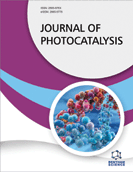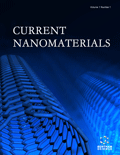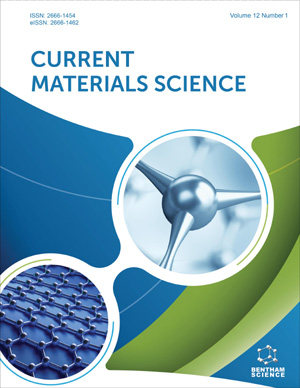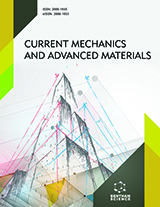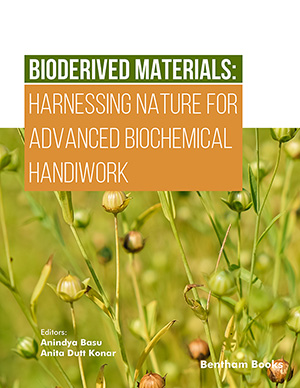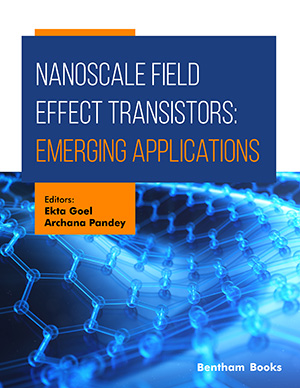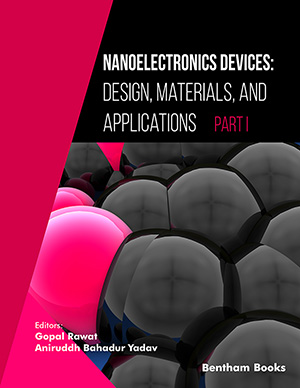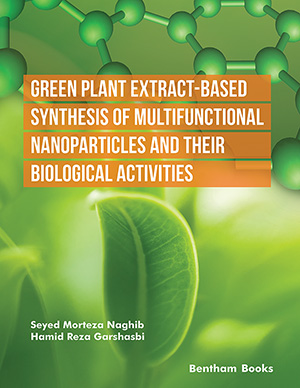Abstract
Aims: Test the hypothesis that the catalytic activity of TiO2 nanoparticles towards a liquidphase or mechanoactivated multicomponent reaction can be tuned by visible light and the shape of nanoparticles.
Background: Catalytic multicomponent reactions have been proven to be excellent synthetic approaches to a series of biologically relevant compounds including 2-amino-4H-benzo[b]pyrans. However, the potential photocatalytic activity and structural diversity of nanostructured catalysts remained underutilized in the design of new catalytic systems.
Objective: Harness the photocatalytic potential and diverse morphology of TiO2 particles as catalysts for the liquid phase and mechanoactivated multicomponent organic reactions.
Methods: The multicomponent reactions have been performed under catalytic, photocatalytic, liquid phase, and mechanoactivated conditions. The catalysts were characterized by XRD and TEM. The organic reactions products were isolated and characterized by NMR and mass spectroscopy.
Results: Catalytic activity of TiO2 nanoparticles towards multicomponent synthesis of 2-amino-4Hbenzo[ b]pyrans is increased by visible light. The nanorod-shaped TiO2 nanoparticles have shown substantially higher catalytic activity towards mechanoactivated multicomponent synthesis of 2- amino-4H-benzo[b]pyrans than their spherically-shaped counterparts.
Conclusion: An efficient methodology for the synthesis of 2-amino-4H-benzo[b]pyrans under ambient light condition has been developed using TiO2 nanorods (high aspect ratio anatase nanocrystals) as photocatalyst. This simple method furnished the corresponding terahydrobenzopyrans in high yields via three component reaction of aldehyde, malononitrile, and dimidone under solvent free reaction conditions at room temperature. The reaction takes 8-10 min at room temperature under ambient light condition and the catalyst can be reused multiple times. Utilization of light and the nanorod morphology of the catalyst through mechanoactivation has been applied for the -first time to the synthetic technique of multicomponent reactions. The synthetic procedures for 2-amino-4Hbenzo[ b]pyrans have been improved.
Keywords: Visible light, TiO2 nanorods, one-pot multicomponent reaction, solvent free synthesis, 2-amino-4Hbenzo[ b]pyrans, reusable catalyst.
[http://dx.doi.org/10.1002/anie.201301843]
[http://dx.doi.org/10.1016/j.catcom.2010.12.027]
b)Rueping, M.; Vila, C. Visible Light Photoredox-Catalyzed Multicomponent Reactions. Org. Lett., 2013, 15(9), 2092-2095.
[PMID: 23586924]
[http://dx.doi.org/10.1021/jz2011622]
[http://dx.doi.org/10.1039/c2cy20247f]
[http://dx.doi.org/10.1039/c3gc40587g]
[http://dx.doi.org/10.1071/CH15322]
[http://dx.doi.org/10.3762/bjoc.11.173] [PMID: 26664577]
[http://dx.doi.org/10.1007/BF03254289.]
[http://dx.doi.org/10.1515/znb-2009-0318]
[http://dx.doi.org/10.1002/hlca.200900197]
[http://dx.doi.org/10.1016/j.tetlet.2012.12.109]
[http://dx.doi.org/10.1080/00397910701396906]
[http://dx.doi.org/10.1021/sc3000866.]
[http://dx.doi.org/10.1016/j.tetlet.2011.02.031]
[http://dx.doi.org/10.1002/3527605118]
[http://dx.doi.org/10.1021/jo9005427] [PMID: 19397302]
[http://dx.doi.org/10.1016/j.tet.2008.06.061]
[http://dx.doi.org/10.1080/00397910701578578]
[http://dx.doi.org/10.1016/j.tetlet.2012.06.086]
[http://dx.doi.org/10.1016/j.catcom.2011.04.004]
[http://dx.doi.org/10.1016/j.tet.2011.09.137]
[http://dx.doi.org/10.1039/b822481a] [PMID: 19436896]
[http://dx.doi.org/10.1016/j.jfluchem.2005.10.004]
[http://dx.doi.org/10.1016/j.catcom.2006.05.031]
[http://dx.doi.org/10.1021/jp052458z] [PMID: 16852938]
[http://dx.doi.org/10.1021/ja00441a042]
[http://dx.doi.org/10.1023/A:1009575232219]


